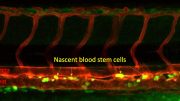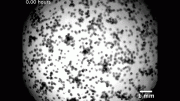
A Drexel University study finds that over 23% of individuals seeking treatment for binge eating use cannabis, which may affect their eating disorder and mental health symptoms. The research underlines the necessity for clinicians to screen for cannabis and alcohol use, pointing to the need for updated research in the context of changing legal and social norms.
Research conducted by Drexel University revealed that almost 25% of participants in a binge eating study reported using cannabis within the last three months.
New research from Drexel University’s Center for Weight, Eating and Lifestyle Science (WELL Center), examined how often people investigated the frequency of recreational cannabis use among individuals with binge eating behaviors. Furthermore, the research explored whether cannabis consumption in these patients is associated with more severe symptoms of eating disorders or with heightened challenges related to mental health.
While there has been a great deal of research on the impact of cannabis on eating habits, less is known about the effects of cannabis use on individuals with a binge eating disorder. Binge eating is the experience of feeling out of control when eating or unable to stop eating. Cannabis may play a particular role in maintaining binge eating as research suggests cannabis can increase how pleasurable or rewarding people find high-sugar or high-fat foods.
Study Findings on Cannabis Use
Recently published in Experimental and Clinical Psychopharmacology, the research found more than 23% of the 165 study participants reported using cannabis in the past three months – either “once or twice” or “monthly.” These participants were individuals seeking treatment for binge eating and reported their cannabis and alcohol use as part of that process.
“Distinguishing the relationship between cannabis use, eating disorder severity, and other psychiatric symptoms in binge eating patients is necessary for informing screening and clinical recommendations,” said lead author Megan Wilkinson, a doctoral student in Drexel’s College of Arts and Sciences.
Cannabis, Alcohol Use, and Binge Eating
While study participants who used cannabis reported “a strong desire or urge to use cannabis” and they also drank alcohol more frequently and reported more problems related to their alcohol use; the research team noted that participants with binge eating disorders who used cannabis did not have more severe eating disorder or depression symptoms.
“Both alcohol and cannabis can impact an individual’s appetite and mood. Our finding that patients with binge eating who use cannabis also drink more alcohol may suggest that these individuals are at a higher risk for binge eating, given the compounded effects on appetite and mood from these substances,” said Wilkinson. “Treatments for binge eating should explore how substance use affects hunger, mood, and eating for patients.”
Surveys, Interviews, and Comparative Analysis
Participants also completed surveys and interviews about their binge eating, other eating disorder symptoms, and depression. The research team compared individuals who reported cannabis use to individuals who did not report cannabis use to see if there were statistically significant differences in their alcohol use, eating disorder symptoms, or depression symptoms.
The findings indicate that a notable subset of the participants with binge eating disorders use cannabis and experience strong desires or urges to use cannabis. Additionally, using cannabis appears to be related to drinking patterns and problems with drinking (e.g., needing more alcohol to feel intoxicated, inability to control drinking) for patients with binge eating.
Clinical Implications and Future Research Directions
“We hope this research is helpful for clinicians treating patients with binge eating, as it can provide them with updated information about the prevalence of cannabis use in their patients,” said Wilkinson. “We recommend that clinicians screen for cannabis and alcohol use in all their patients and assess any potential problems the patient may be experiencing related to their substance use.”
Wilkinson also noted that updated research on cannabis use in patients with binge eating will be required regularly due to changing social norms and laws related to cannabis in the United States. Next, Wilkinson and her colleagues are planning to explore the ways that cannabis use may impact hunger and mood for patients with binge eating, and therefore potentially exacerbate their binge eating symptoms.
Reference: “Cannabis use and binge eating: Examining the relationship between cannabis use and clinical severity among adults with binge eating” by Megan L. Wilkinson, Claire Trainor, Elizabeth Lampe, Emily K. Presseller and Adrienne Juarascio, 2024, Experimental and Clinical Psychopharmacology.
DOI: 10.1037/pha0000706









Be the first to comment on "Cannabis Consumption and Compulsive Eating: What’s the Link?"